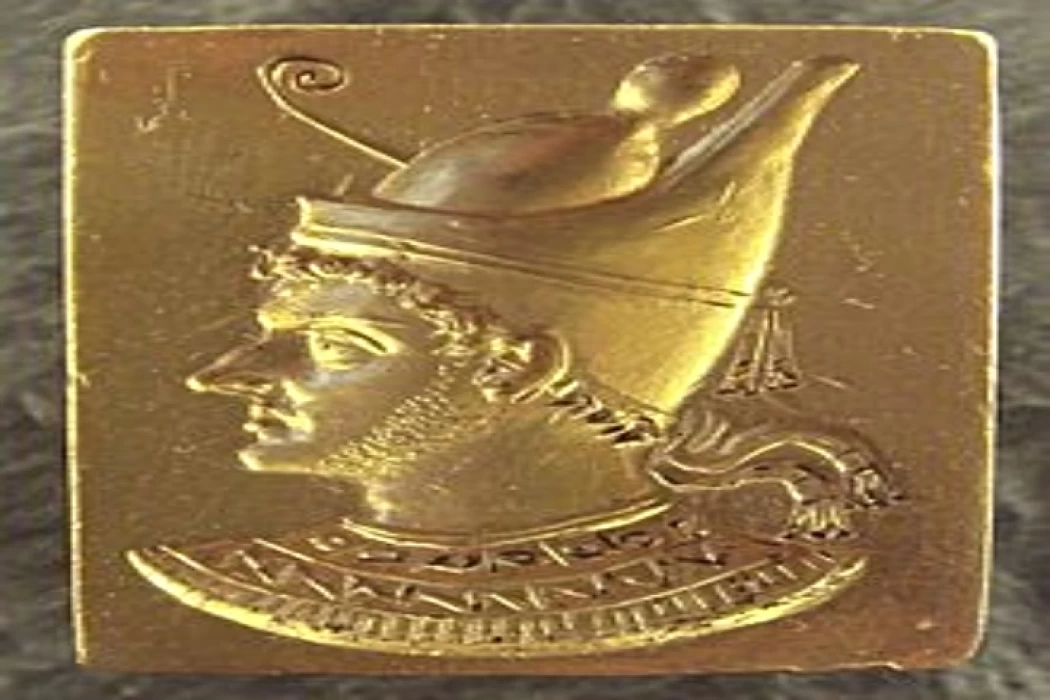
Ptolemy VIII his title was Yorgetis II (meaning goodness)
Ptolemy VIII his title was Yorgetis II (meaning goodness)
He is the son of Ptolemy the Fifth, who ruled from 169 BC. AD in Egypt and from 163 - 145 BC. M, then from 145 - 116 BC, Egypt, and a violent revolution erupted against him in the years 130 - 131, after which he fled and was the sole ruler in that period, Cleopatra II, Queen of Egypt, but Ptolemy VIII was able to regain his kingdom and died in 116 BC. He married Junner, the king of China. She united with him against Cleopatra II
Ptolemy VIII was the younger brother of Ptolemy VI, the former king of Egypt, and he was at odds with his brother Ptolemy VIII, and conflicts between them almost led to a civil war when the Senate decided to separate Libya from Egypt and solve this prisoner dispute by giving him the kingdom of Corinth Pleisa, and he became king over it.
A few years later, Ptolemy VIII, King of Libya, claimed that his brother Ptolemy VI was trying to assassinate him and annex Libya to Egypt again - and Ptolemy cleverly covered his claim by writing and publishing a will of inheritance stating that upon his death his kingdom of Corinth would devolve to Rome. But this commandment was not implemented because he succeeded his brother Ptolemy VI on the throne of Egypt and was known as Ptolemy VIII, and he ruled Egypt for 54 years, which is the longest period in which a king from the Ptolemaic family ruled the throne of Egypt, and the second in the history of Egypt after the rule of Ramses II.
The reign of Ptolemy VIII is considered one of the most stable reigns and as a result of this political stability and friendship with Rome, the rising superpower at that time, and the lack of wars, economic prosperity occurred and trade flourished between the countries of the White Sea, which became a Roman lake, and a number of Roman visitors visited Egypt for tourism as he visited it. Official officials from Rome have published a papyrus translation dating back to the year 112 BC. It was found in the remains of an ancient village located approximately 100 km from the Great Sphinx and the Pyramids. It includes instructions and orders sent from a senior official in Alexandria: “Lucius Mimius - a Roman senator - enjoys status Great in stature and honor is making a trip from Alexandria to the Arsinoite region.
Latest Articles
Admin
Seabourn Sojourn Cruise Stops in Safaga Port
The Seabourn Sojourn, the flagship vessel of Seabourn Cruise Line's ultra-luxury fleet, was built in 2008 at the T. Mariotti shipyard in Genoa, Italy. Measuring 198 metres, it can accommodate up to 450 guests in its 225 spacious all-suite staterooms.
Admin
Norwegian Sky Cruise Stops in Safaga Port
Norwegian Cruise Line operates a cruise ship called the Norwegian Sky. It was constructed in 1999 and can accommodate 2,004 passengers in addition to 878 crew members. The ship has several dining establishments, lounges and bars, a spa and fitness center, swimming pools, and a number of entertainment areas.
Admin
Explora II Cruise Stops in Safaga Port
Explora II, the second vessel in the Explora Journeys fleet, sets sail in 2024 to redefine luxury cruising. With 461 ocean-front suites, 9 culinary experiences, and 4 pools, this haven of sophistication and sustainability promises an unforgettable "Ocean State of Mind" journey to inspiring destinations.
Admin
Mein Schiff 6 Cruise Stops in Safaga Port
The Mein Schiff 6 is the latest cruise ship in the renowned TUI Cruises fleet, offering passengers a luxurious and sophisticated cruise experience. At 315 metres long, this floating resort features a range of dining options, entertainment, and recreational facilities, including a spa, fitness centre, and sports amenities.
Admin
Mein Schiff 4 Cruise Stops in Safaga Port
When the Mein Schiff 4 cruise ship docks in Safaga, Egypt, passengers are granted access to a realm of ancient wonders. Aboard this state-of-the-art vessel, guests can embark on meticulously curated shore excursions that showcase the region's most iconic landmarks, including the Giza Pyramids, the enigmatic Sphinx, and the remarkable tombs and temples of the Valley of the Kings in Luxor.
Admin
MS Europa Cruise Stops in Safaga Port
The Silver Moon, Silversea's latest flagship, is a luxury cruise ship that offers an exceptional travel experience for Venezuelans exploring Egypt. With a capacity of 596 guests and an impressive 40,700 gross tonnes, the Silver Moon maintains the small-ship intimacy and spacious all-suite accommodations that are the hallmarks of the Silversea brand.














